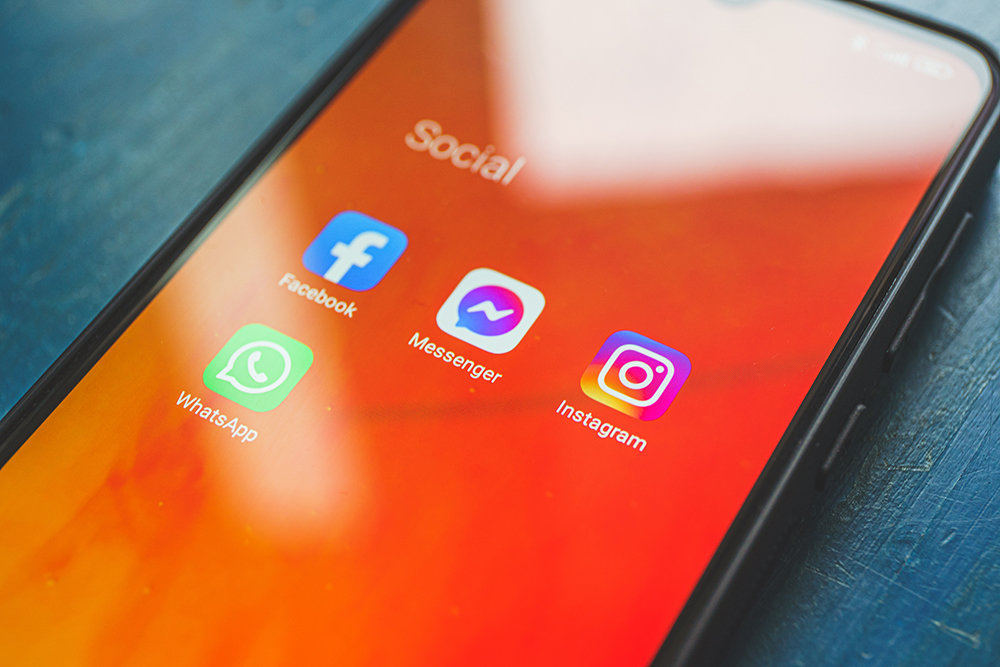On Monday, October 4th, Facebook — and, with it, Instagram and WhatsApp — went down for a little more than five hours. Though I’ve read a few articles about the crash, I can’t say I completely understand it. The social networking company issued a statement apologizing for the brief lapse in service and explaining that “configuration changes on the backbone routers that coordinate network traffic between our data centers caused issues that interrupted this communication.”
In other words, the infrastructure of the internet has been built ad hoc over time, and behemoths of the ’net, themselves used by nearly half the world’s population, rely on seemingly insignificant components to work. If those small components go down, so too do the bigger systems that rely on them. Fair enough.
The outage was short-lived, and I doubt too many users of Facebook or Instagram, which is owned by Facebook, were dramatically impacted. WhatsApp is another story, as it’s used by many Latin American customers as a way to avoid high mobile phone tariffs. But what if Facebook hadn’t booted back up?
First, let’s try a little experiment. Tab over to Google, and type “Facebook admits” in the search bar. What results do you see? I got “Facebook admits Instagram is toxic,” “Facebook admits it messed up again,” “Facebook admits to social experiment,” and “Facebook admits to selling data.” Sure, this is hardly scientific, but what is it people say? “Believe people when they show you who they are.”
Facebook is a business, of course, and not a person, but the point stands. So what would happen if the site — and those it owned — never booted back up? Admittedly, it would be a little more difficult to secure some interviews. Not everyone has their email address listed publicly. In fact, I might have missed out on a column pitch, as someone had sent me a question about a potential column on a Facebook comment thread just hours before the site went down. But let’s look beyond the immediate inconveniences that would be caused.
Vaccination rates would probably skyrocket. It seems to take a steady stream of propaganda to keep people at the requisite anger levels needed to erode critical thinking skills. Because what social networking apps sell is user engagement. They’re geared toward keeping our eyes on the screen, our thumbs continuously caressing our precious fondle slabs. That way we see more advertisements on the sites, and we give them more of our personal data, which in turn allows them to better advertise to us.
At this point I should probably say that, in general, I am a fan of any new technology that makes communication easier. I remember being younger and living 1,400 miles or so away from my dad. We used to buy long distance “minutes” cards because calling long distance on the landline was so expensive. With the advent of the internet, people can talk to each other from opposite sides of the globe, for free, as long as they have access to an internet connection. That’s amazing. Frankly, I don’t think we stop and marvel at it often enough. But we’ve given Facebook free rein to work with little oversight. It’s huge, and remember, Instagram and WhatsApp didn’t get their start as creations of Mark Zuckerberg and co.; they were bought because they threatened to take up a little slice of our attention.
That’s the problem. In order to be successful, Facebook has to take up more and more of our attention. So things that make us angry are prioritized because anger boosts engagement. If psychologists and sociologists and ethicists and legislators sat down with a wide selection of potential users of a new technology and figured out guidelines for safe use, then wrote regulations based on those guidelines, we wouldn’t have a problem. Most of us never would have heard of the anti-vaxx group Global Frontline Nurses. But the automobile is always invented before the traffic light — or the seat belt or airbag or shatter-proof windshields or anti-lock brakes. And those inventions are small potatoes anyway. What about the highway and interstate systems? Or the way that vehicles changed the basic makeup of most American cities? No cars, no suburbs, for example.
Social media is more or less ubiquitous, and it’s relatively new. Maybe the time has come to, if not phase it out altogether, then at least make sure it’s promoting the best interests of the 3.5 billion people who use it.
